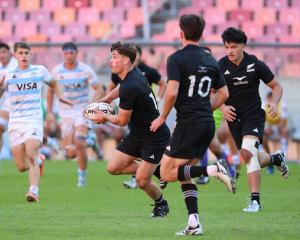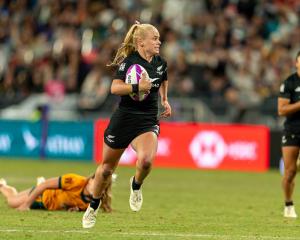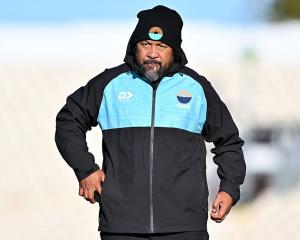The head of Drug Free Sport New Zealand says he has concerns about supplement use by the country's top school teams.
The agency will now undertake a large survey on first XVs to gauge the use of supplements as players face pressures to get bigger.
In response, New Zealand Rugby said it was pouring more than $100,000 a year into drug testing and education and said it took the issue of drug abuse in its sport extremely seriously.
A report from the Mail on Sunday in England showed 10 rugby players in England had been banned because of drug use this year, with most of them being young players.
A report out of South Africa said out of 52 schoolboy rugby players tested in the republic, 12 returned positive tests for anabolic steroids.
Drug Free Sport New Zealand chief executive Graham Steel said, when contacted yesterday, the agency carried out 274 tests on rugby players last year out of a total of 1300 tests done on all sports in New Zealand.
The tests were on All Blacks, Super 15 players and ITM Cup players, with no tests below first-class level. Most of the tests were done out of competition.
Steel said the way rugby had evolved with bigger players, supplements were an option for many young players.
''We are concerned about the growing pressure on young kids and young rugby players to get bigger,'' Steel said.
The agency had done some research on seven of the top first XVs in the country, and said the teams appeared to be opening the door to supplement use.
''The research showed they are ready to use supplements. But they do not have enough information around them, both in the effect of the supplements and what is in them.''
He said the supplements were both obtained over the counter and, more worryingly, via the internet.
''Some teams would provide some guidance but we are concerned across 140-odd students ... they did not have enough information.''
He said supplements had their place if used properly but questioned whether that was happening.
He wondered if a young user knew what the supplements actually did, what the supplements cost, and what the risks associated with taking them were.
''With the information coming out of the UK and some real concerning stuff coming from South African schools, we are going to be paying pretty close attention to what young players are taking.
''You get a young sportsman in rugby or rugby league and this could be their meal ticket to the big time, so they feel they have to use them.''
He said with the pressure in society over body image, supplements were becoming more common.
However, there was no systematic problem of supplement abuse at the top level, he believed.
New Zealand Rugby general manager rugby Neil Sorensen said the issue of drugs was taken very seriously.
''Each year, we carry out an additional 70 tests on rugby players above what DFSNZ does. This costs New Zealand Rugby $100,000 a year. As well, further testing is carried out by world rugby,'' Sorensen said.
''We think rugby in New Zealand is ... clean compared to other countries. While there have been isolated cases, we do not believe ... we have a widespread problem.''
New Zealand Rugby had put extra resources into the area and had recently appointed a full-time integrity manager and education manager.
The education manager had a specific focus on young players (15 to 19), and was tasked with developing an education and life skills programme to help them manage the transition to being professional athletes.
One particular focus was to develop education around anti-doping, abuse of medication, supplements, alcohol and drugs, as well as gambling.
''We are determined to remain vigilant and to further evolve our policies in this area,'' Sorenson said.












